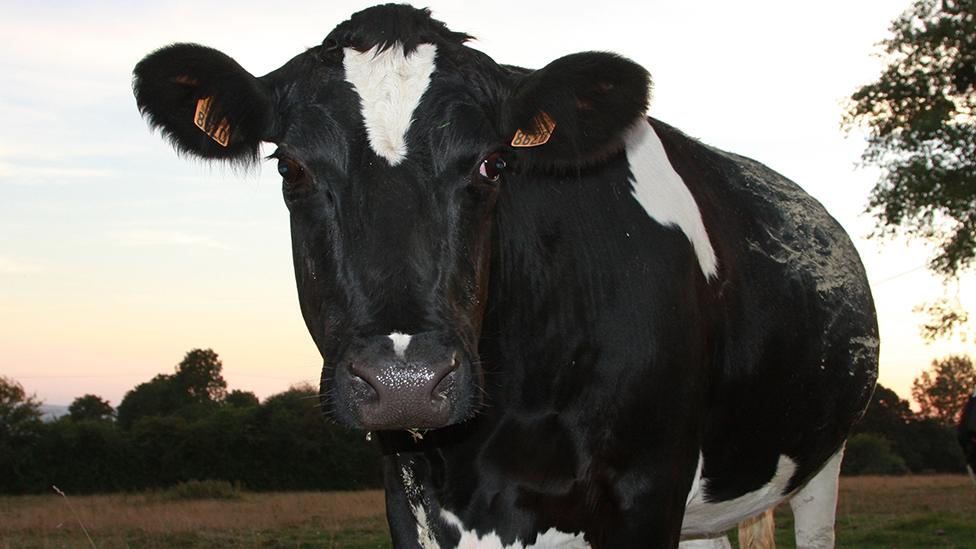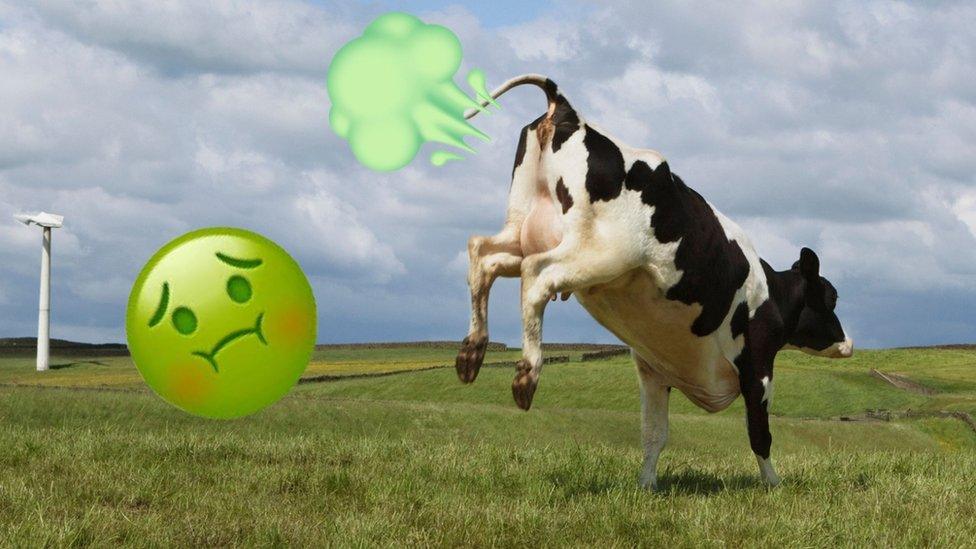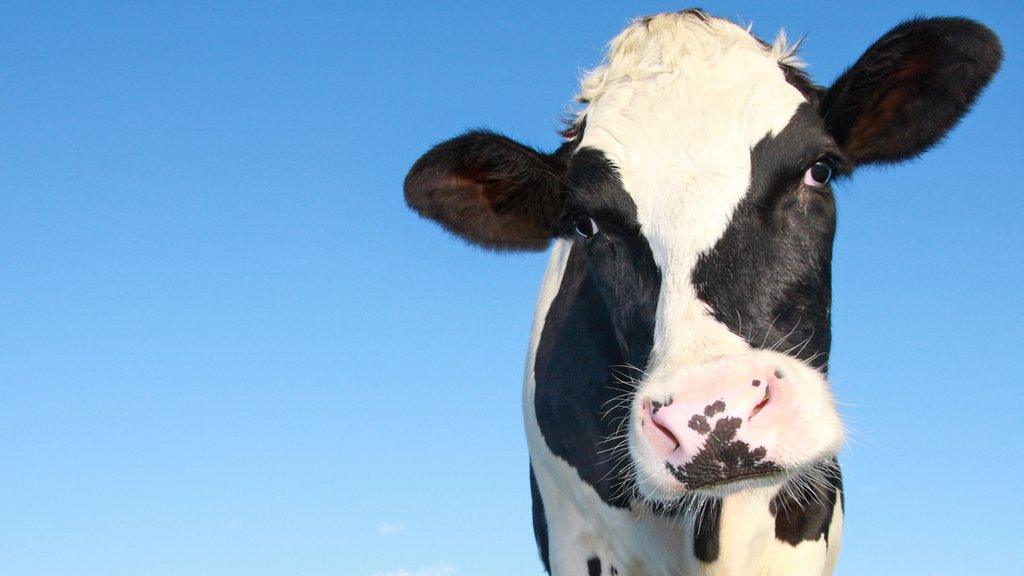Climate change: Morrisons hopes cow seaweed diet will cut methane
- Published
- comments

The seaweed diet trial is being run in conjunction with Queen's University in Belfast
A supermarket chain is to feed cows seaweed in an attempt to reduce "burps and flatulence" and cut methane emissions.
Bradford-based Morrisons will trial the supplement, which is said to supress bovine wind.
University studies have shown using seaweed as a dietary supplement can cut methane emissions by more than 80%.
A recent Parliamentary report said agriculture produced 10% of the UK's greenhouse gases.
Morrisons' Head of Agriculture Sophie Throup said the seaweed diet would "switch off" elements in the cow's gut that produce methane.
"There is a little bit from their bottoms but mainly from their burps," she said.
"Cows have four stomachs and when they digest their feed there will always be a little bit of gas produced, but what this seaweed does is just really stop methane being made."
Methane is the second most common greenhouse gas after CO2.
It is one of the most potent and responsible for a third of current warming from human activities. Individual methane molecules have a more powerful warming effect on the atmosphere than single CO2 molecules.
At the recent COP26 environmental conference in Glasgow the US and the EU agreed to cut emissions of the gas by 30% by 2030. More than 100 countries have also signed up to the initiative,
As well as monitoring the reduction in methane, Ms Throup said, the trial, run in conjunction with Queen's University in Belfast, would assess the health of the cattle and the taste of the meat.
The supermarket said it planned to work with its existing seafood suppliers to source the seaweed from the coast of the UK and Ireland.

Follow BBC Yorkshire on Facebook, external, Twitter, external and Instagram, external. Send your story ideas to yorkslincs.news@bbc.co.uk, external.
- Published2 November 2021

- Published18 March 2021

- Published17 August 2019
